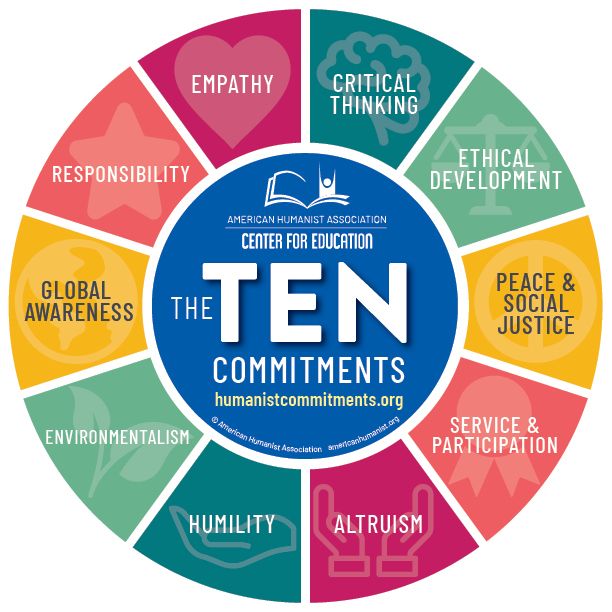Vote like a hero: How humanism can show us how to vote morally
Commentary by Janet Marugg | FāVS News
I’m an old learner and hope to keep it going for a while, to wrinkle my brain at the rate of my skin. It’s not a bad hobby if you can get into it; there’s always something to learn about. The trick is to not confuse knowledge with wisdom. I call it the Curse of Socrates who said, “The only true wisdom is in knowing you know nothing.” The humility of humanity is right here.
Lately I’m poking around the nuances of ethics and morality. One of the Humanist Ten Commitments is to ethical development. Broadly speaking, humanists measure the ethical development of humanity by the well-being of humans. How’s it going? Are humans well and flourishing? It is no measure of my personal morality to be well-adjusted to a sick society. Holding human well-being as my ideal points my moral compass, goads my conscience and forms my desires. So far, it’s been a fine guide.
Don’t tell Socrates, but I claim this knowledge: humans flourish in a democracy, in a society of unity in diversity, where equality and justice are valued and attained. Inequality drives conflict, and where there is conflict, peace is not possible. Another Humanist Commitment is peace and social justice. So, as election season nears, I consider this: the most moral thing I can do is to vote for the well-being of the most marginalized people in my community, my state, my country, my world.
Who are the marginalized people in my community?
Today, it’s the impoverished, LGBTQ+ folks, BIPOC, immigrants, women, disabled, elderly, children — generally people who depend on the moral actions of others and the ethical development of society. All of us.
Philosopher and theologian, Nikolai Berdyaev, put the immorality of poverty this way: “Bread for myself is a material question. Bread for my neighbor is a spiritual one.” I don’t know anything about “spiritual” questions, but it’s clear that poverty drives societal ills and is therefore unethical. Since the poor have the fewest deep-pocket lobbyists on Capitol Hill, I’ll vote for anti-poverty plans and programs over tax breaks for those who need them least, tax evasion being both immoral and unpatriotic.
The moral vote for me is against the government’s subjugation of women’s bodies. Government-managed maternity is indistinguishable from state-run child trafficking. Maternity must be personal and with consent to keep women from the margins and for women and children to flourish. Forcing women to remain married through no-fault divorce laws is also a form of state-run human trafficking. Paying women less is immoral because it hurts women. As a human and as a woman, my moral compass holds firm here at the intersection of women’s well-being and equality.
As we learn more about human biology, we know that LGBTQ people exist, pay taxes and absolutely belong in the public square to flourish as fellow human beings. Same with BIPOC, immigrants, disabled, etc. I can never believe in my head what I don’t feel in my heart and my heart feels this: it hurts to be marginalized.
Vote like a hero
I believe that anybody who can find their heart can know this and use it as a voting guide. Not hurting people is always a good thing. Helping people, even better. The humanist concept of morality requires ties to human well-being or it’s just obedience to dogma that is sometimes proven harmful.
Socrates had reservations regarding democracy. He feared ignorant or misinformed voters would elect a demagogue. I’m not going to pretend it doesn’t happen. But humans are learners, and most vote as creative designers of ethical community structures.
Humans are the heroes in this story, and like all heroes, our mythological protagonists and spiritual beings worthy of our worship, we can all demonstrate protecting the weak and caring for those among us most in need.
Vote like a hero. If there is a god, He/She/It approves.







